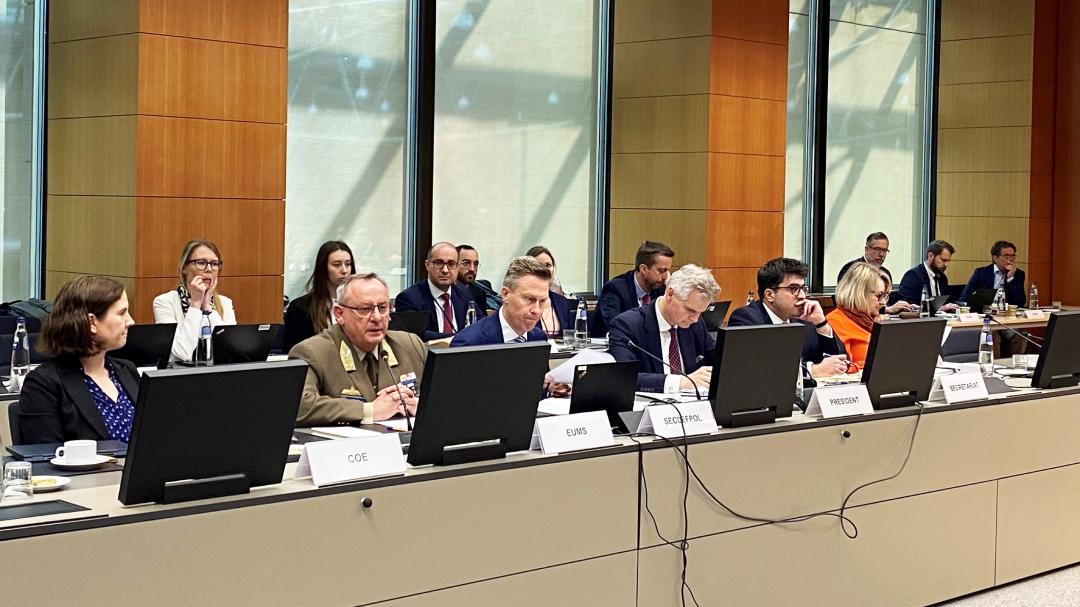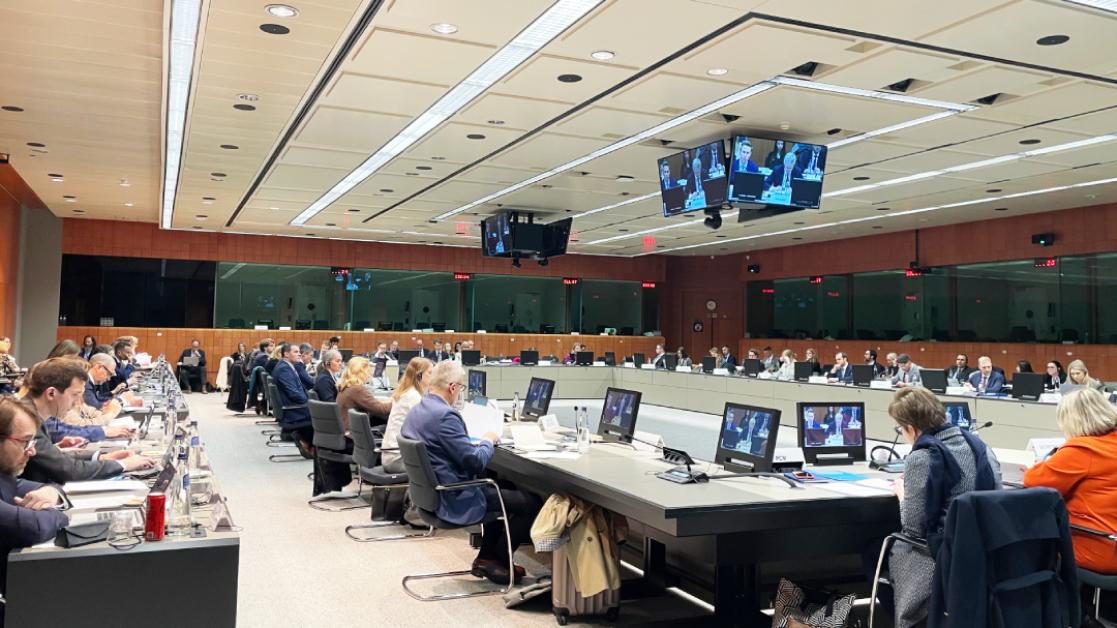EU Member States strengthen Civilian Crisis Management at Annual Conference

The European Union (EU) is taking significant steps to improve its civilian crisis management capabilities. At the second Annual Civilian Capabilities Conference held in Brussels, representatives from EU Member States gathered to discuss how to better support partners in managing crises and be prepared to address emerging security threats the EU is facing. The event, hosted by the European External Action Service (EEAS) and the Polish Presidency of the Council of the EU, brought together representatives from ministries of foreign affairs, justice and home affairs to discuss the development of capabilities for civilian crisis management missions.
Why Civilian Crisis Management matters
Civilian crisis management is a critical part of the EU’s efforts to promote peace and stability. Civilian Common Security and Defence Policy (CSDP) missions play a key role in helping partner countries in fields that are key for citizens’ security and regional/global stability: security and justice sector reform, rule of law, border management, or monitoring.
To succeed, these missions need experts and advisers who can provide tailored support to partner countries. The EU’s civilian missions are designed to build local capacities, offer advice on vital security issues, and foster trust in fragile and conflict-affected regions.
The need for stronger capabilities
This year’s conference marked a significant milestone with the presentation of the first-ever Civilian Capability Assessment Report. This comprehensive report offers an in-depth analysis of civilian CSDP capabilities, identifying both progress and existing gaps at the national and EU levels.

European Union
It emphasises the need for stronger capabilities in several critical areas, including responding effectively to hybrid threats, cyber threats, and Foreign Information Manipulation and Interference (FIMI) and ensuring modular and scalable approach to missions. This assessment will guide future planning and help Member States prioritise the development of essential capabilities for civilian missions.
Adopting flexible and scalable approaches
One of the main themes of the conference was the importance of flexibility in civilian missions key to ensure a modular and scalable approach to missions. This implies smaller and more flexible missions, able to adapt to circumstances and partners’ needs. For instance, by using specialised teams and visiting experts (highly specialised staff from Member States deployed for short-term, specific task). The EU recently sent experts to Moldova to help the government counter hybrid threats. Similarly, in January 2025, border and security experts were deployed to the EU Border Assistance Mission for the Rafah crossing point (EUBAM Rafah) to support its reopening as part of a ceasefire agreement.
This flexible approach offers several benefits:
- Tailored support: Better alignment with the needs of host countries.
- Cost-effectiveness: Leaner mission structures reduce expenses.
- Responsive mandates: Missions can adapt quickly to changes on the ground.
The role of the Annual Civilian Capabilities Conference
The Annual Civilian Capabilities Conference is a vital platform for collaboration among EU Member States. It fosters cooperation, coordination, and strategic planning to strengthen civilian CSDP capabilities. By bringing together representatives from foreign affairs, justice, and home affairs ministries, the conference ensures a comprehensive approach to addressing security challenges. Its first edition took place in 2024.
The conference aligns with the Civilian CSDP Compact 2023-2027, which sets policy priorities for strengthening civilian crisis management. Its goals include:
- Enhancing the EU’s ability to respond to conflicts and crises
- Preparing civilian missions for future challenges
- Developing solutions to close capability gaps, particularly in human resources
The EU faces a multitude of threats and crises in its immediate neighbourhood and beyond. The demand for civilian CSDP missions continues to grow. These missions are deployed in fragile and conflict-affected settings to reinforce the police, rule of law and civil administration.
The European Union currently deploys 12 civilian missions and one civilian-military initiative on three continents under the framework of the CSDP. EU civilian crisis management missions support EU foreign and security policy objectives, providing the EU with a unique operational capability in the EU neighbourhood and beyond. Civilian experts advise and train, upon invitation of the host countries, local partners in Africa, the Middle East, Eastern Europe and the Western Balkans. Around 2,000 staff work under the EU flag in the field. The mandates of the civilian CSDP missions are agreed unanimously by EU Member States.





